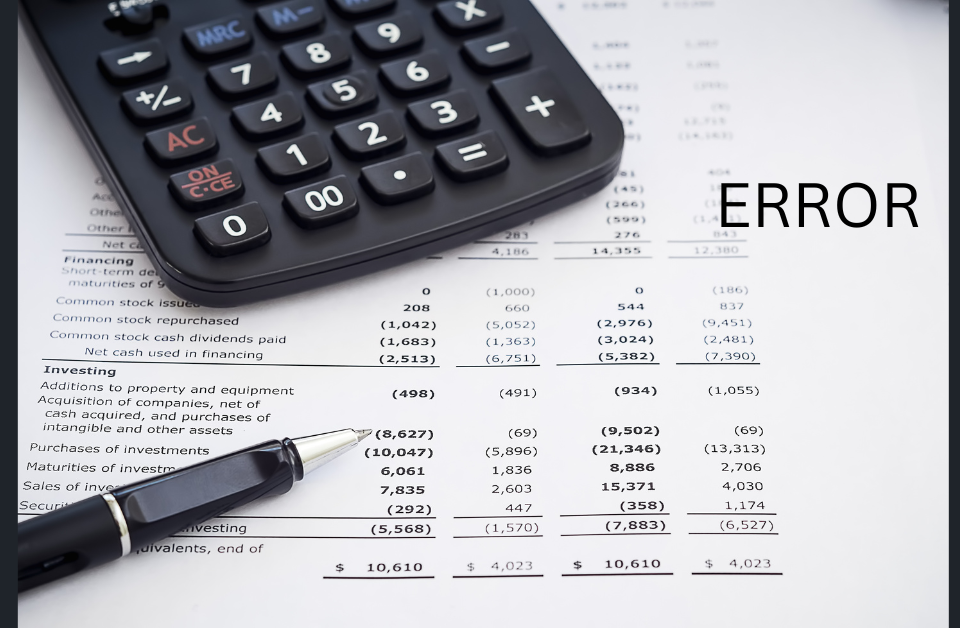Managing price range is important for any enterprise. However, many commercial enterprise proprietors frequently confuse bookkeeping with accounting. While both are critical for financial management, they serve one-of-a-kind purposes. Understanding the distinction between bookkeeping and accounting allows you to make knowledgeable decisions and streamline your business price range. In this weblog, we will discover the important differences between bookkeeping and accounting, their roles, and the way each contributes to your commercial enterprise’s economic fitness.
Understanding Bookkeeping
Bookkeeping is the procedure of recording daily monetary transactions systematically. It specializes in documenting each economic flow your commercial enterprise makes, including income, purchases, payments, and receipts. Bookkeepers make certain that your monetary statistics are accurate and up to date.
Key Responsibilities of a Bookkeeper
Recording monetary transactions in journals or software programs.
Managing invoices and receipts.
Reconciling bank statements.
Maintaining ledgers for distinct debts.
Preparing initial monetary reviews.
Action Tip: Use a bookkeeping software program to automate fact entry and decrease errors.
Understanding Accounting
Accounting, alternatively, includes deciphering, studying, and summarizing financial statistics. It transforms the raw financial records recorded through bookkeepers into meaningful insights. Accountants use these records to put together economic statements, tax returns, and monetary strategies.
Key Responsibilities of an Accountant
Preparing monetary statements like balance sheets and earnings statements.
Conducting economic evaluation and forecasting.
Ensuring compliance with tax rules.
Advising on monetary making plans and method.
Performing audits to check the accuracy of financial statistics.
Action Tip: Hire an expert accountant to help with tax planning and monetary analysis.
Bookkeeping vs. Accounting: Key Differences
Although bookkeeping and accounting are closely related, they range in numerous approaches. Understanding those differences can assist you make a decision about which provider your commercial enterprise wishes.
A. Purpose and Focus
Bookkeeping: Focuses on recording monetary transactions as it should be.
Accounting: Focuses on decoding and analyzing economic facts.
B. Skills Required
Bookkeepers: Need interest to element and skillability in records access.
Accountants: They require analytical competencies and an understanding of tax laws and monetary planning.
C. Reports Generated
Bookkeepers: Provide transaction summaries and initial financial reports.
Accountants: Prepare comprehensive monetary statements and tax files.
Action Tip: Start with bookkeeping if you are a new enterprise owner and progressively integrate bookkeeping and accounting offerings as your business grows.
The Role of Bookkeeping in Financial Management
Bookkeeping lays the muse for powerful economic control. Without correct bookkeeping and accounting, it will become nearly impossible. Bookkeepers assist you in keeping song of charges, income, and other monetary transactions, making it simpler to put together for tax season and manage cash go with the flow.
Benefits of Accurate Bookkeeping
Simplifies tax education.
Helps in budgeting and economic planning.
Facilitates smoother audits.
Reduces the risk of monetary discrepancies.
Action Tip: Conduct monthly evaluations of your books to perceive capacity mistakes early.
The Role of Accounting in Business Growth
Accounting goes beyond recording transactions. It helps you comprehend your business’s financial fitness and make informed decisions. By reading monetary statements, accountants help you pick out worthwhile areas and cut down pointless expenses.
Benefits of Effective Accounting
Enhances choice-making.
Supports strategic planning and budgeting.
Ensures compliance with tax legal guidelines.
Helps secure funding from investors.
Action Tip: Schedule quarterly meetings with your accountant to study financial performance and modify techniques.
Should You Hire a Bookkeeper or an Accountant?
Choosing between a bookkeeper and an accountant depends on your enterprise length, financial complexity, and finances. Small groups may start with a bookkeeper and seek advice from an accountant for taxes. As your business grows, hiring each turns into essential.
When to Hire a Bookkeeper
For coping with everyday economic transactions.
When your enterprise generates an excessive number of invoices and receipts.
To simplify tax preparation and audit processes.
When to Hire an Accountant
For tax making plans and compliance.
When you want economic analysis and forecasting.
To assist enterprise expansion and investment choices.
Action Tip: Outsource bookkeeping to begin with and lease an accountant for strategic economic recommendations.
Bookkeeping vs. Accounting: Common Myths
Misconceptions about bookkeeping and accounting can lead to terrible economic management. Let’s debunk some commonplace myths.
Bookkeeping and Accounting Are the Same
Reality: While bookkeeping focuses on recording statistics, accounting interprets and analyzes those records.
Small Businesses Don’t Need Accounting
Reality: Even small companies need accounting to conform with tax regulations and make knowledgeable financial choices.
Bookkeepers Can Handle Taxes
Reality: Bookkeepers can prepare primary tax documents, but most effective accountants have the expertise to deal with tax planning and compliance.
How Technology Is Transforming Bookkeeping and Accounting
Technology has revolutionized bookkeeping and accounting. Cloud-based software, automation, and artificial intelligence have simplified these duties, decreasing guide errors and saving time.
Benefits of Cloud-Based Accounting Software
Real-time financial facts get entry to.
Automated invoicing and fee monitoring.
Enhanced information security.
Simplified tax training.
Action Tip: Invest in a cloud-based software program like QuickBooks or Xero to streamline bookkeeping and accounting.
Common Mistakes to Avoid in Bookkeeping and Accounting
Mistakes in bookkeeping or accounting can lead to monetary discrepancies, consequences, and even audits. Here are a few commonplace mistakes to observe out for:
Bookkeeping Mistakes
Not preserving receipts and invoices.
Failing to reconcile bank statements.
Mixing private and commercial enterprise expenses.
Accounting Mistakes
Ignoring tax cut-off dates.
Misclassifying fees.
Overlooking monetary evaluation.
Action Tip: Conduct normal audits and critiques to catch and correct mistakes early.
Bookkeeping vs. Accounting: Summary of Key Differences
Aspect Bookkeeping Accounting
Purpose Record financial transactions Interpret and examine financial facts
Skills Required Attention to detail Analytical competencies, tax know-how
Reports Generated Transaction summaries, Financial statements, tax returns
Tools Used Spreadsheets, bookkeeping software program, Accounting software program, financial models
Understanding these variations allows you to allocate resources efficiently and manage your price range better.
Conclusion
In the warfare of bookkeeping vs. Accounting, it’s clear that each plays a critical role in commercial enterprise success. Bookkeeping serves as the inspiration through recording correct economic statistics, while accounting builds on that foundation to provide insights for strategic decision-making. By spotting the important things, such as the variations between bookkeeping and accounting, you could make knowledgeable selections about your business’s financial control. Invest in each to ensure your business’s monetary health and boom.









